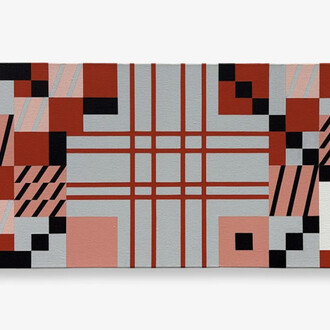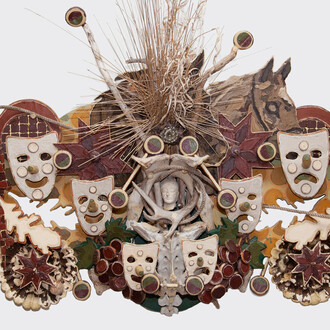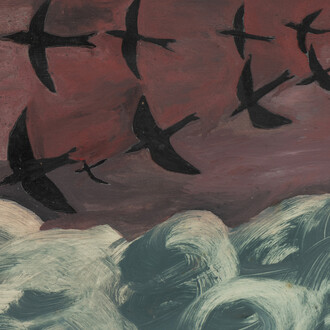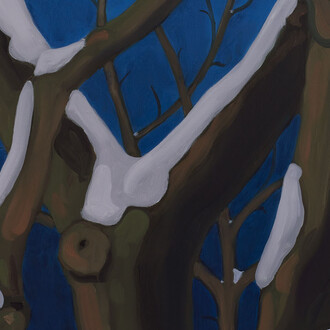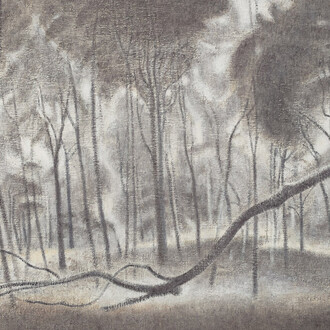Monika Sprüth and Philomene Magers are pleased to present Words, Jenny Holzer’s first solo show at Sprüth Magers’ New York gallery. Works on paper—text layouts and document tracings that began as preparatory drawings for stone benches and paintings—are presented in a salon-style hang punctuated by stoneworks, new paintings, and an LED installation featuring AI-generated text. Highlighting Holzer’s use of material and language, the exhibition offers a glimpse into the artist’s process from the 1980s through today.
Holzer’s works in stone are objects of contemplation, inviting the viewer to slow down and consider the text cut into their surfaces. A blue granite footstool reads, “The most profound things are inexpressible”, while another in white offers, “Words tend to be inadequate”. The drawings for Holzer’s stoneworks show their beginnings and, compared with the sculptures produced from them, appear fragile and ephemeral. The works on vellum not only document process but also evoke the history of tracing, the oldest method of transferring compositions and meaning.
A new body of drawings is based on tracings of documents used in preparation for Holzer's Redaction paintings. The tracings can reproduce pages from reports of military operations, domestic surveillance, tech advancements for warfare, and investigations of the Trump administration. Holzer applies charcoal to tracings with her hands, using touch and movement to create abstract compositions, some concentric and others more diffuse. Gestures record a body on redacted pages, countering the sometimes sparse information with an invitation to bear witness.
The Redaction Paintings are layered with oil paint and metal leaf, transforming pages into hybrid works that combine abstraction with information. Their complex surfaces are wrought from experiments in color and light that bring visual interest to the stark voids of the documents. The paintings’ reflective quality recalls Holzer’s use of light projection to cover buildings with documents, giving viewers occasion to linger and read in the dark.
Continuing her exploration of language, Holzer recently began experimenting with AI. The two LED pieces in this show are among her first works to use AI-generated text. Their contrasting installation gives form to the nature of their programs. Leaning upright, So good (2024) presents content that Holzer prompted about experiences human and ethereal, physical and immaterial. Fragments of published writings by accomplished authors stimulated the text generator, enhancing its ability to describe natural and intangible phenomena, and to mimic abstract, complex human thought and emotion. Its antithesis, Bad (2023), lies on the gallery floor, pulsing with AI-generated statements and cryptic poems prompted by extremist content from the political altand far-right. As flashes of colored light bounce off the surroundings, these sculptures worry authorship, originality, and the language and direction of our times.
For more than forty years, Jenny Holzer has presented her astringent ideas, arguments, and sorrows in public places and international exhibitions, including Times Square, the Venice Biennale, the Guggenheim Museums in New York and Bilbao, and the Louvre Abu Dhabi. Her medium, whether a T-shirt, plaque, or electronic sign, is writing, and the public dimension is integral to her work. Starting in the 1970s with her New York City street posters and continuing through her recent light projections on landscape and architecture, her practice has rivaled ignorance and violence with humor, kindness, and courage. Holzer received the Leone d’Oro at the Venice Biennale in 1990, the World Economic Forum’s Crystal Award in 1996, and the US State Department’s International Medal of Arts in 2017. She holds honorary degrees from Williams College, the Rhode Island School of Design, The New School, and Smith College. She lives and works in New York.








